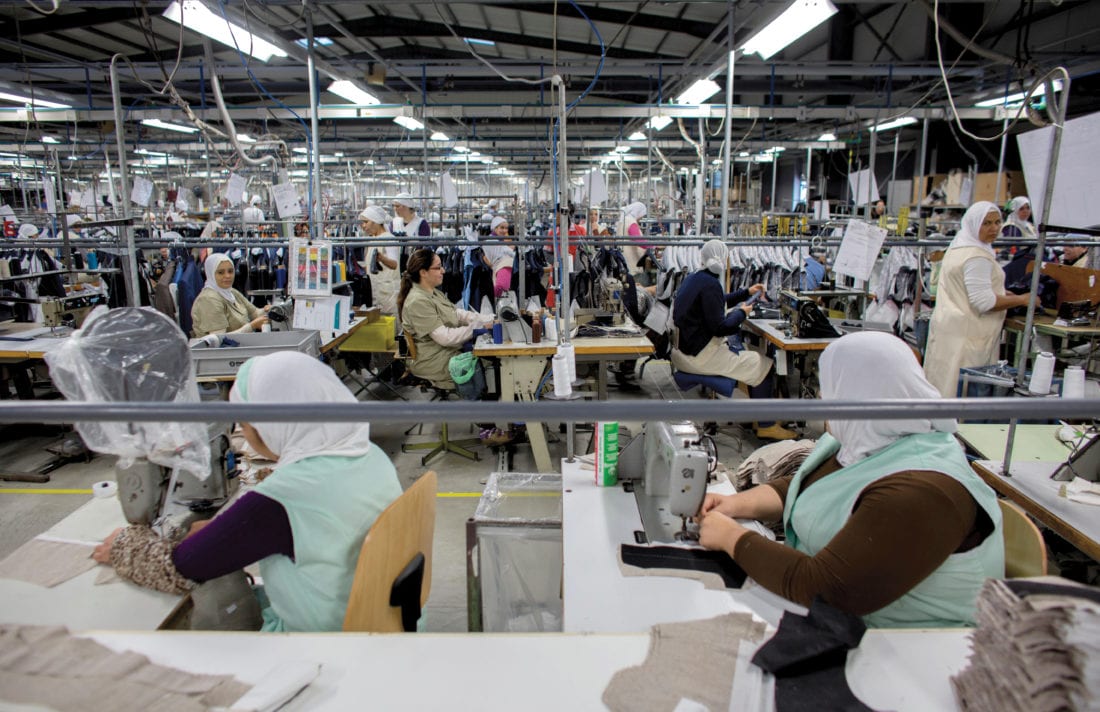House Arrest

In trade debates, multinational corporations are often cast as villains exploiting low-wage workers in countries with weaker labor laws at the expense of Americans. But what does the evidence say?
Dean Ann Harrison and Prof. David Levine recently reviewed existing evidence for the Brookings Institution—part of a larger effort to better understand the complex role of multinationals in the global economy. Harrison is one of the most-cited researchers on multinationals, offshoring, and direct foreign investment. Levine, the Eugene E. and Catherine M. Trefethen Chair in Business Administration, has studied effects of industrialization on health and education in developing countries. Berkeley Haas spoke with Levine about their findings.
How did you define exploitation?
We looked at it three ways. The first is whether workers are worse off than if they hadn’t worked for the multinational company. Second is asking whether workers are being paid a fair share given that they’re often producing products that are quite valuable. And third is whether these employers are respecting fundamental human rights, since almost every country with multinationals has signed on to the International Labour Organization’s standards which prohibit slavery, child labor, and discrimination.
What’s the evidence on wages for multinationals operating in developing countries?
There’s strong evidence that on average these workers are not being exploited in that they don’t earn less than they could elsewhere. Multinationals often pay more than domestic firms, sometimes meaningfully more. But larger firms often pay higher wages, and multinationals tend to be large firms. We also see quite high turnover— these workers aren’t feeling overpaid, and these jobs aren’t particularly cherished.
How did you look at the question of whether workers get a “fair share”?
To the extent that branded companies like Nike, Nordstrom, or Apple are making a lot of profits, it seems fair to many people for them to pay above-market wages in poor countries. There isn’t evidence that they’re systematically sharing a lot of the surplus—wages in most studies are not a whole lot higher than people would earn elsewhere. If you see a branded product, it’s likely the assembly workers received a very small share of that value.
What about human rights?
There’s strong evidence of tragically high levels of exploitation in terms of violations of basic human rights, and women are especially vulnerable to sexual harassment or worse. There isn’t evidence that multinationals are worse at stopping sexual harassment or abuse than domestic firms, but having lower rates doesn’t let them off the hook: They’re still violating fundamental human rights. Over the past decade, Western-based multinationals have almost universally adopted zero-tolerance policies against child labor. There have been improvements, but some violations are still uncovered.
Do multinationals hurt U.S. workers?
It does seem like on average the growth of outsourcing has been bad for Americans at the middle and bottom of the wage distribution, especially in manufacturing. But for every outsourced job, it doesn’t mean that if you banned outsourcing it would save that job. The existing research doesn’t nail down what share of outsourced jobs would have been lost anyway, but it’s a reasonable estimate that most of them would have disappeared due to technology and automation. Outsourcing is not the main challenge American workers face.
Posted in:
Topics:



